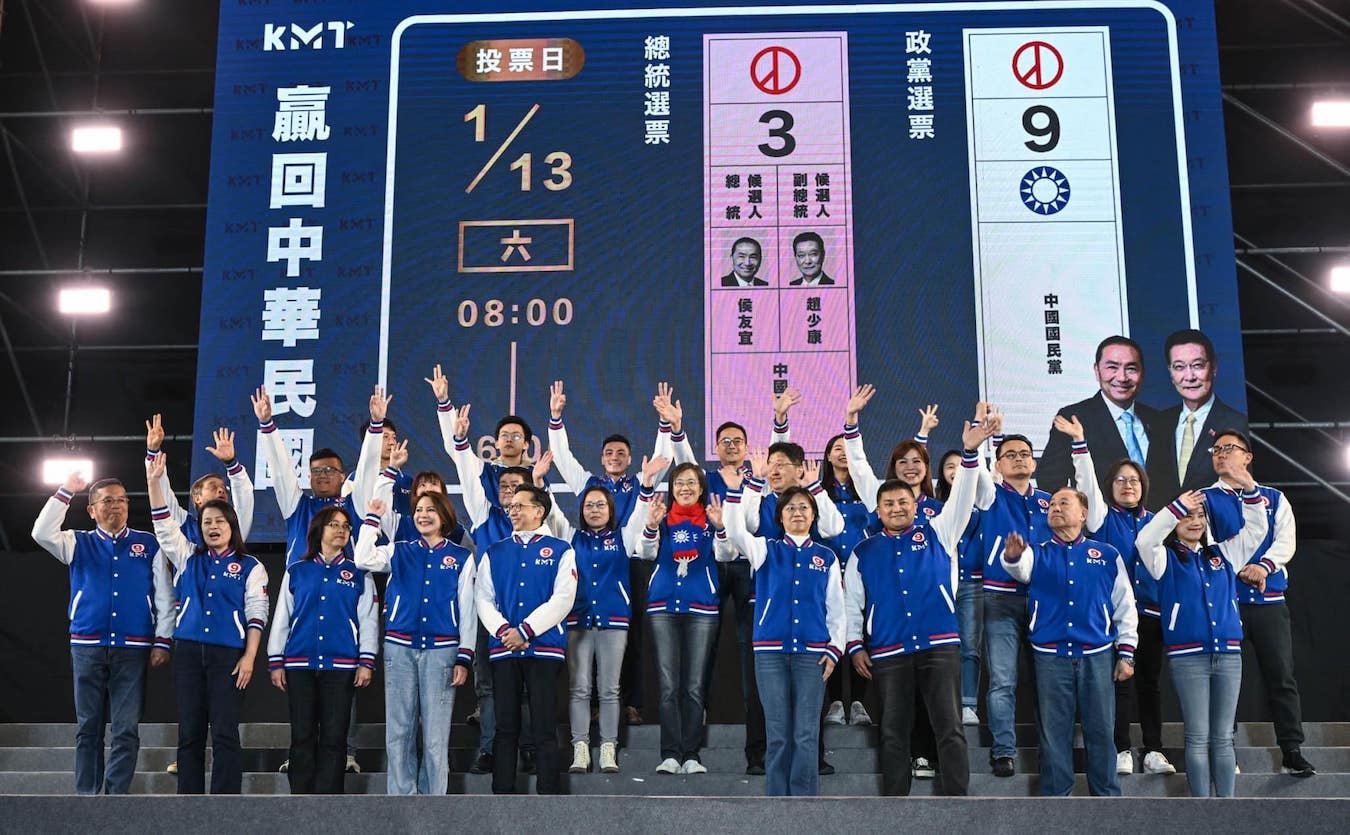by Brian Hioe
語言:
English
Photo Credit: KMT/Facebook
KMT DEPUTY CHAIR Andrew Hsia once again traveled to China last week, one of the many visits that Hsia has undertaken to China in the past two years. Hsia met with Song Tao, the director of the Taiwan Affairs Office (TAO), although before the trip occurred, the KMT claimed that Hsia had no plans to meet with any Chinese officials.
Hsia began this pattern of visits to China shortly after the visit to Taiwan by US Speaker of the House Nancy Pelosi in August 2022. The trip was immediately controversial, seeing as China carried out a series of live-fire exercises aimed at militarily intimidating Taiwan in the wake of the Pelosi visit.
Indeed, the optics of this trip and its timing were immediately sensitive, even for the KMT. A group of younger party members that were primarily city councilors or city councilor candidates in Taipei, New Taipei, Changhua, and Pingtung issued an open letter that the trip be reconsidered. The open letter they published emphasized the dangers for the party, in that the trip would strengthen perceptions of the KMT as linked to the CCP in a way that might be electorally damaging for it.
For its part, the Mainland Affairs Council also criticized the trip, first advising against the trip, and then later accusing Hsia of conducting United Front work for China. The KMT originally framed the trip as scheduled ahead of time, and simply coincided with the Chinese drills. However, the Presidential Office later stated that the KMT had, in fact, applied for the visit during the same time as the drills.
Indeed, it is not the first time that Hsia has visited China first claiming that he would not meet with any Chinese government officials then later doing so. This was claimed with regard to other meetings between Hsia and Song Tao in the past, as well. The KMT may fear interference from the Tsai administration if the full details of Hsia’s itinerary in China are publicized.
Hsia’s visit was in the context of an incident involving a Chinese speedboat that was intruding in the territorial waters of Kinmen. After the speedboat refused to submit to a Taiwanese Coast Guard inspection and tried to flee, the speedboat crashed into a Coast Guard vessel and capsized. Two of the four men on the speedboat were without vital signs when they were recovered.
 Photo credit: KMT/Facebook
Photo credit: KMT/Facebook
Indeed, during his meeting with Song Tao, Song pinned the blame for the incident on the DPP. Song claimed that the DPP carried out aggressive actions toward Chinese fishermen who were merely trying to make their livelihood.
As for Hsia, he claimed that the KMT would provide oversight over the DPP, and ensure that the truth of the incident came to light. Hsia, stating that he was acting on behalf of KMT chair Eric Chu, conveyed condolences to family members of the deceased fishermen.
To this extent, Hsia claimed that the KMT had the support of the majority in Taiwan, citing the pan-Blue camp’s slim majority in the Legislative Yuan. At present, the KMT has 54 seats to the DPP’s 51 seats in the Taiwanese legislature. However, one notes that despite this claim, the KMT did not win the presidential race.
Although this is a narrow lead, one notes that Hsia is echoing the language of the CCP, which in its messaging after the results of the 2024 elections sought to emphasize that the DPP’s stances did not reflect majority opinion in Taiwan. As the TAO’s statement after election also emphasized that the CCP would seek to work with supportive political parties in Taiwan, language absent from previous statements after elections, this has sometimes been interpreted as a signal to the KMT or other pan-Blue parties that they should seek to route around the incoming Lai administration and conduct direct relations with the CCP.
Indeed, this has been a concern in the past regarding past visits. Speculation in February of last year hinged around that through a meeting between Hsia and CCP chief ideologist Wang Huning, the KMT would seek to craft a new political formula to replace the 1992 Consensus. Otherwise, direct meetings between CCP and KMT officials have taken place on a party-to-party basis in the past, leading to concerns about the possibility of the CCP and KMT attempting to circumvent the authority of the government and negotiate a peace treaty between Taiwan and China in preceding years.
While Hsia’s visit to China did not involve this possibility, one does see the continued attempt to route around the DPP. But, given how Hsia’s visits have led to warnings in the past of poor optics even from other members of the KMT, it is to be seen whether this is to the benefit or detriment of the KMT in the future.

